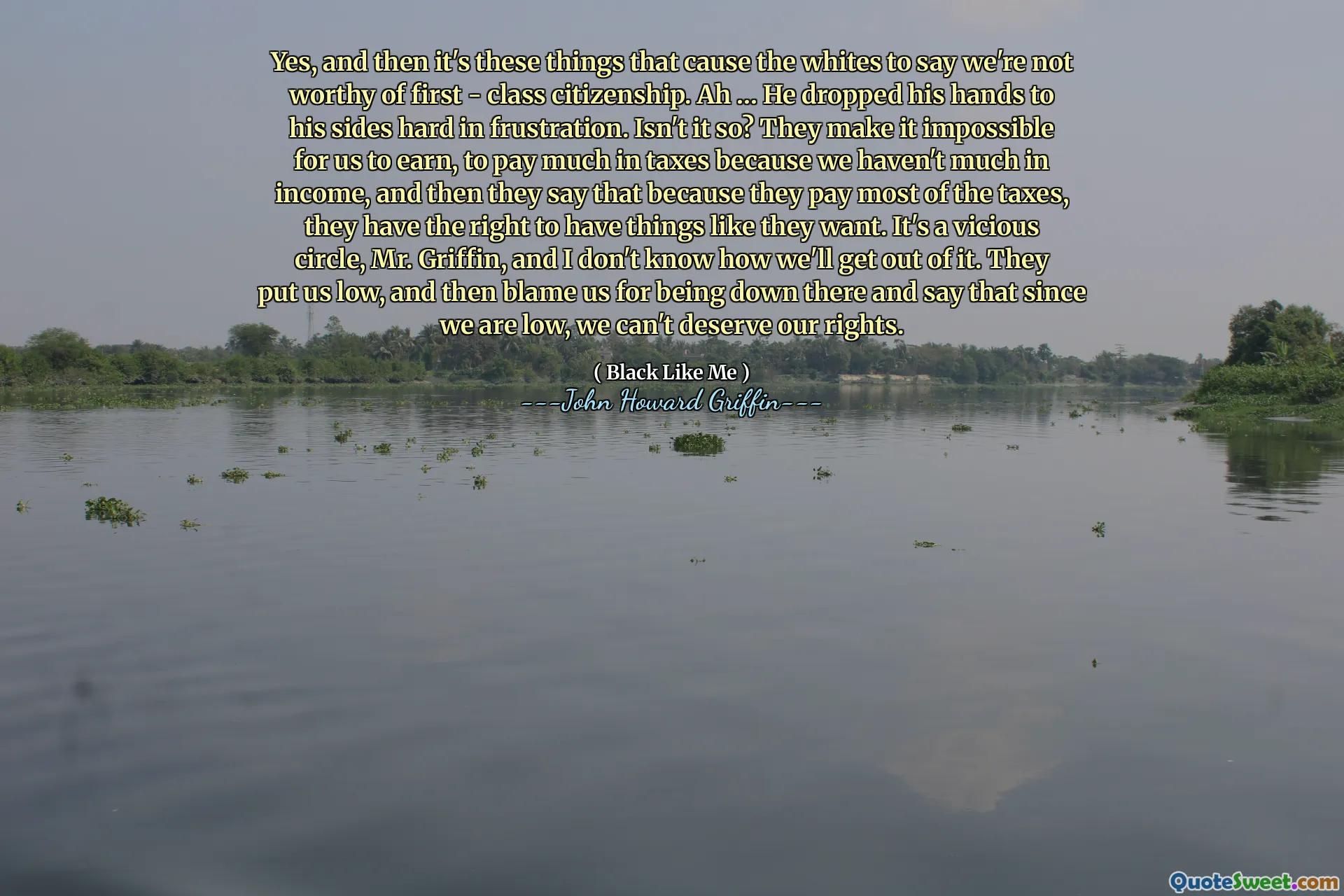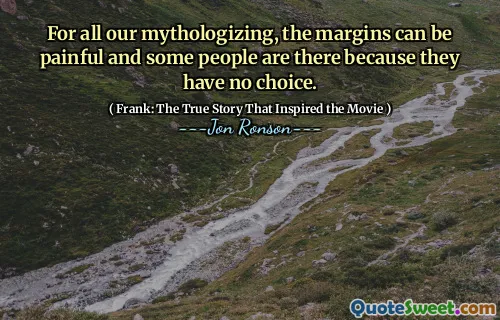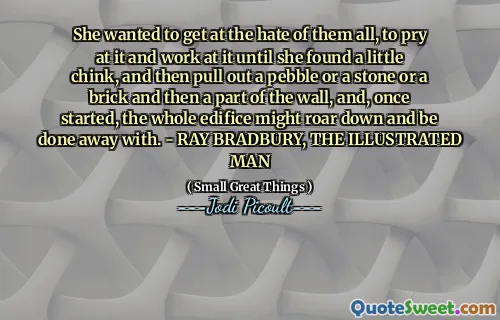
Yes, and then it's these things that cause the whites to say we're not worthy of first - class citizenship. Ah … He dropped his hands to his sides hard in frustration. Isn't it so? They make it impossible for us to earn, to pay much in taxes because we haven't much in income, and then they say that because they pay most of the taxes, they have the right to have things like they want. It's a vicious circle, Mr. Griffin, and I don't know how we'll get out of it. They put us low, and then blame us for being down there and say that since we are low, we can't deserve our rights.
[In this quote, the speaker highlights a profound cycle of systemic inequality and injustice that perpetuates racial discrimination and social stratification. The speaker explains how societal structures and prejudices maintain a status quo that disenfranchises marginalized communities, primarily Black individuals. First, they are labeled as unworthy of full citizenship and stripped of rights, which prevents them from earning a fair livelihood or paying adequate taxes, often because of limited access to economic opportunities. Interestingly, this economic marginalization is then used as justification to deny these communities their rightful privileges, reinforcing a cycle where poverty leads to blame, and blame justifies further disenfranchisement. The phrase 'vicious circle' underscores a self-perpetuating system that sustains inequality: the oppressed are kept 'low,' blamed for their poverty, and consequently denied dignity and rights. It presents a compelling argument about how systemic barriers, economic or racial, are mutually reinforcing and very difficult to break free from without deliberate intervention and societal change. This quote prompts reflection on the historical and ongoing struggles faced by marginalized groups and underscores the importance of dismantling unjust systems to establish true equality and justice. It challenges us to consider how societal narratives are manipulated to justify inequality and highlights the pervasive nature of structural racism that persists in many forms, even when efforts are made to address it. The quote resonates deeply with ongoing social struggles, reminding us that equitable progress requires addressing the roots of systemic discrimination rather than its symptoms alone.






